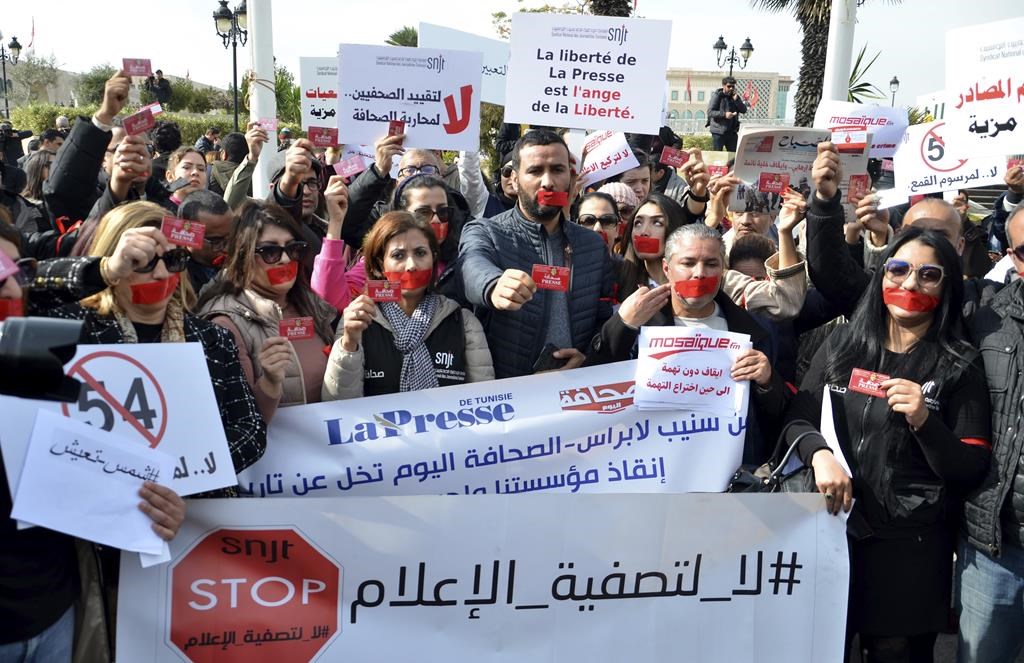TUNIS, Tunisia (AP) – President Kais Saied of Tunisia ordered Europe’s top trade union official to leave the North African country after speaking to protesters at a demonstration organized by a powerful union.
Authorities accused Esther Lynch, the Irish general secretary of the European Trade Union Confederation, of making statements “interfering in Tunisian internal affairs” during a protest against Saied in the port city of Sfax on Saturday.
The General Union of Tunisia, or UGTT for short, organized the demonstration to protest the crackdown on the increasingly authoritarian President’s political opponents and his critics in the media, judiciary, business community and trade unions.
In a speech to protesters, Lynch called for the release of union leader Anis Kaabi, who was arrested by security forces last month.
She called on the Tunisian government to negotiate with the UGTT leadership and improve the economy, which was fueled by political instability that worsened after a general election last month in which just 11% of voters cast their votes. is on the brink of bankruptcy.
“By order of the president, the Tunisian authorities ordered Esther Lynch to leave the country within 24 hours after making statements interfering in Tunisia’s internal affairs during the UGTT-led demonstration,” the statement said Tunisian Presidency, which was published on Twitter late Saturday.
The European Trade Union Confederation (or ETUC) confirmed that Lynch left Tunisia on Sunday.
The Tunisian authorities’ treatment of Lynch “is consistent with the campaign of intimidation and harassment being waged against unions by President Kais Saied,” including “arrests, sackings of union officials (and) malicious lawsuits,” the ETUC said in a statement .
“These tactics are part of a campaign by President Saied to break the union’s opposition to policies that make ordinary people pay for the country’s economic, social and constitutional crisis,” the statement said.
Saied won the presidency in 2019 on a promise to improve the country’s economy. Instead, the president seems determined to turn the country’s political system upside down, threaten a democracy that was once seen as a model for the Arab world, and send the economy into a tailspin.
In December, the International Monetary Fund froze a $1.9 billion loan agreement for Tunisia. The heavily indebted government needs the funds to pay UGTT-represented public sector salaries and budget shortfalls exacerbated by the COVID-19 pandemic and the aftermath of the Russian war in Ukraine.
In recent months, Tunisians have been hit by rising food prices and shortages of fuel and staples like sugar and vegetable oil.
The Associated Press
Don’t miss interesting posts on Famousbio
